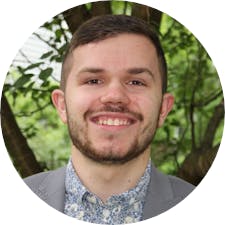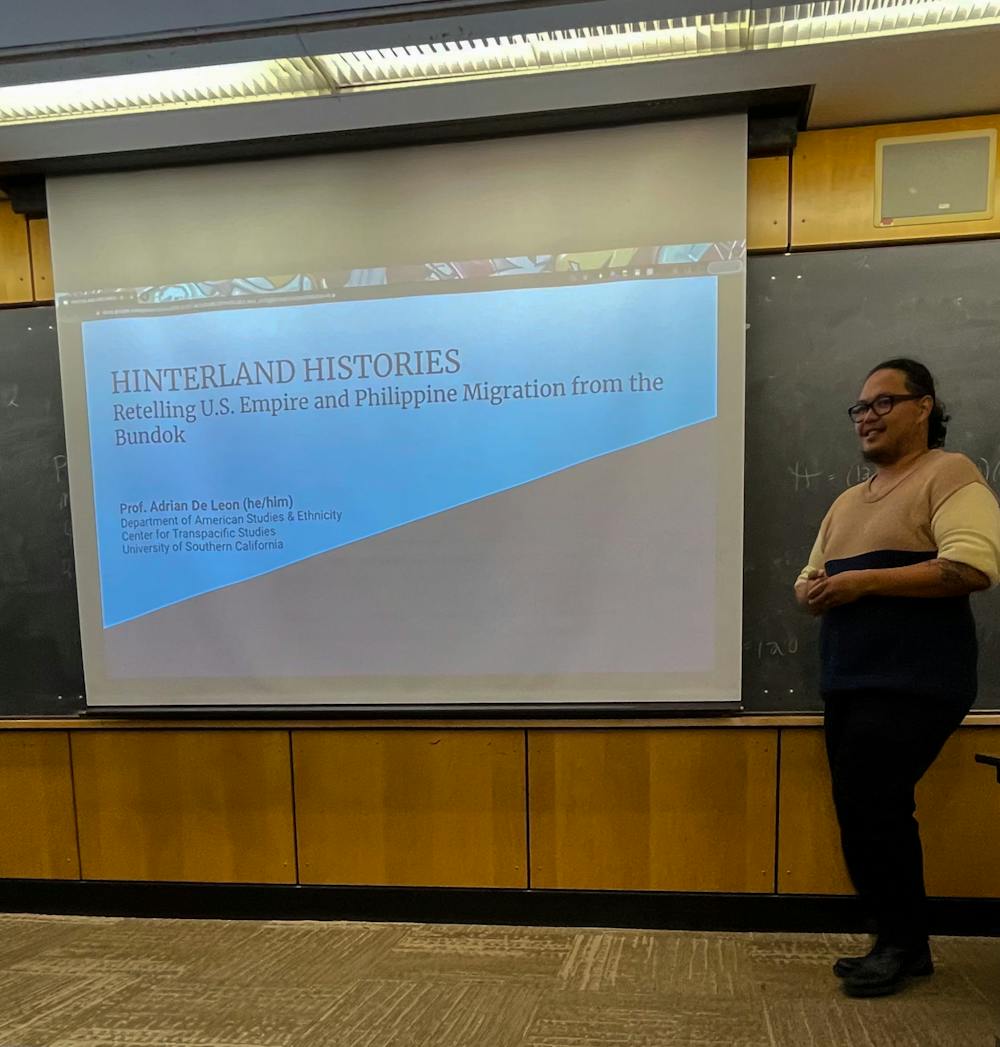The Department of History kicked off its “Diversifying Epistemologies” series Tuesday with a talk titled “Hinterland Histories: Retelling U.S. Empire and Philippine Migration from the Bundok” led by Adrian De Leon, assistant professor of American studies and ethnicity at the University of Southern California.
De Leon, who is also a host for PBS Digital Studios and the Center for Asian American Media, has been featured in publications such as The Los Angeles Times, National Geographic and The Washington Post, according to the event description.
Naoko Shibusawa, associate professor of history and American studies, introduced De Leon and the event series, which she said “seeks to foreground the relationship between the use cases of systemic racism and knowledge formation.”
“We intend for the series … to interrogate the kinds of questions we asked the past and to consider how the different modalities and ethics of research and scholarship are profoundly intertwined,” she added.
The theme for this year’s series is Indigenous epistemologies, Shibusawa said. “In order to imagine a better future, or even a future on this planet Earth, … studying and being influenced by Indigenous epistemologies in particular is necessary and crucial,” she said.
De Leon said he studies the Philippines “without reducing it to an American colony, without reducing it to just the Philippines (and) without reducing it to the purview of elites.”
Instead, De Leon aims to distinguish between Indigeneity and Nativeness and rethink the Asian diaspora, Asian migration and global Asia from a settler colonial critique and Indigenous studies perspective.
A majority of De Leon’s work has focused on Luzon, a northern island of the Philippines. Luzon has been central to the “process of racial formations as well as migrant labor and the rise of American capitalism,” he said.
“I want to think about what it means to rewrite a history of this thing we call Filipino America from the hinterlands, from the ‘Bundok,’ ” which led to the American expression, “the boondocks,” De Leon said.
The word “Bundok” gained prominence during the Spanish-American and Philippine-American wars, he said. Upon the encounter of American genocidal imperialism in the Philippines and consequent Philippine insurgence, the “bundok” “became a place of an (imagery) of wildness … (and) of insurgency as well as aspirational counterinsurgency at capital resources,” De Leon added.
De Leon critiqued existing historiographies of Filipino history, arguing that there are two historiographies of “U.S.-Philippine colonial relations based on space. We have the historiography of the highlands and the lowlands,” he said. He added that such historiographies are built on a past of U.S. occupation.
De Leon concluded his presentation with a question-and-answer session. In response to a question from Rick Baldoz, associate professor of American studies, De Leon said that his work aims to “delineate Nativeness and Indigeneity,” noting that “all Indigenous peoples are Native, but not every Native person is Indigenous.”
He also addressed the idea of archives as broad bases of historical knowledge: “I like the use of the term archive versus colonial knowledge because it forces us to think in a really material way.”

Peter Swope was the senior editor of digital engagement for The Brown Daily Herald's 133rd Editorial Board. He previously served as a Sports section editor and has also written stories for University News. Peter is a senior from New Jersey studying history.





